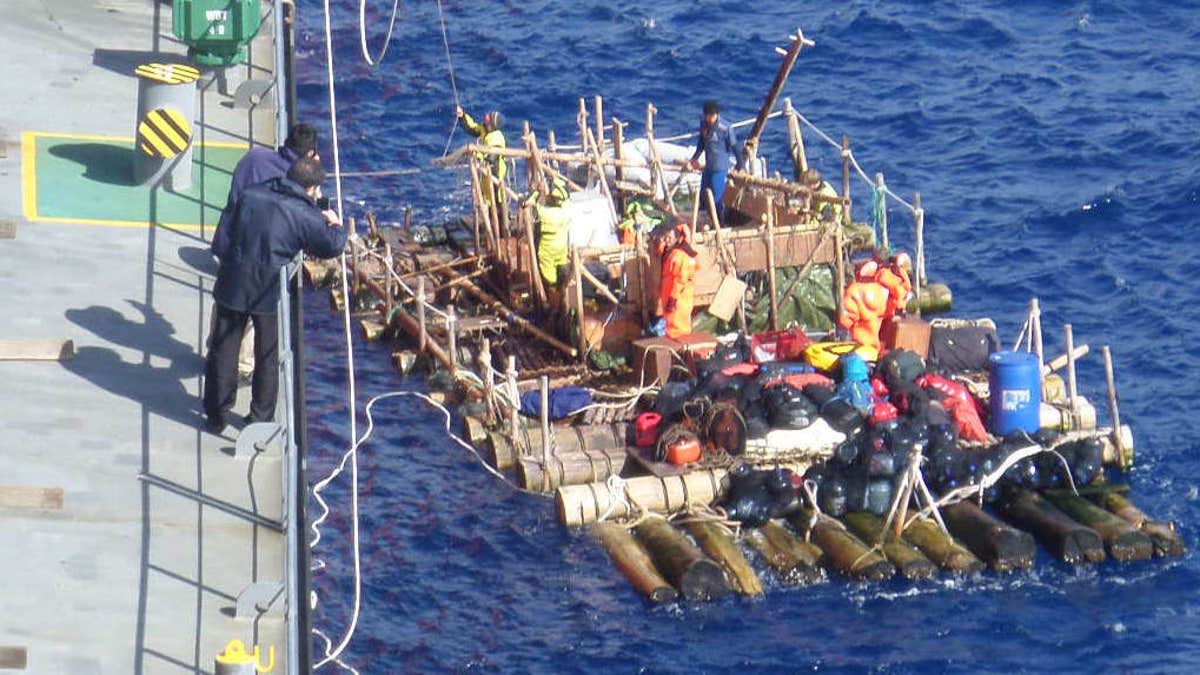
In this Thursday, March 17, 2016 photo, provided by the Chilean Navy, of the one of two rafts of the Kon-Tiki 2 expedition is rescued by a Chilean Navy ship, about 994 miles west of Puerto Montt in southern Chile. (Armada de Chile via AP)
SANTIAGO, Chile – Fourteen crewmembers aboard two balsa rafts were rescued Thursday after the vessels were swept up in strong currents hundreds of miles off Chile's coast.
The Kon-Tiki 1 and 2 rafts set sail in early January from Chile's Easter Island in the Pacific Ocean toward the port city of Valparaiso, Chile.
However, strong currents pulled them far off course. The Chilean Navy said in a statement that the rafts were about 994 miles west of Puerto Montt in southern Chile. The Navy was sending a merchant ship about 200 nautical miles away from the rafts plus a plane to track them from the sky. The group sent out a distress signal Wednesday asking for assistance.
Later Thursday, authorities said the 14 were rescued by the Vanuatu-flagged Hokuetsu Ushaka, which was the closest boat to the rafts.
The official website said the group had been sailing to document climate change, pollution and marine life in the Pacific.
In a statement, expedition leader Torgeir Higraff said they were aborting the voyage for safety reasons.
"In a normal year, we would have reached South America by now," said Higraff. "Instead, we are still 900 nautical miles from land and the weather forecasts are not promising. The crew is in good health and spirit, and there is no emergency situation."
The crews include citizens of Norway, Peru, Mexico, New Zealand, Russia and Sweden.
Admiral Mario Montejo, director of maritime operations and security, said "they are in good health, just a bit tired."
The original Kon Tiki set sail in 1947 from Peru. The expedition was led by Norwegian Thor Heyerdahl, who was seeking to prove his theory that winds and marine currents allowed for prehistoric sailing trips between South America and Polynesia.
After 101 days, Heyerdahl and five crew members reached the island of Raroia in the Tuamoto Archipelago. A book about the expedition was translated into dozens of languages. In 1951, Heyerdahl's film about the journey won an Oscar.
